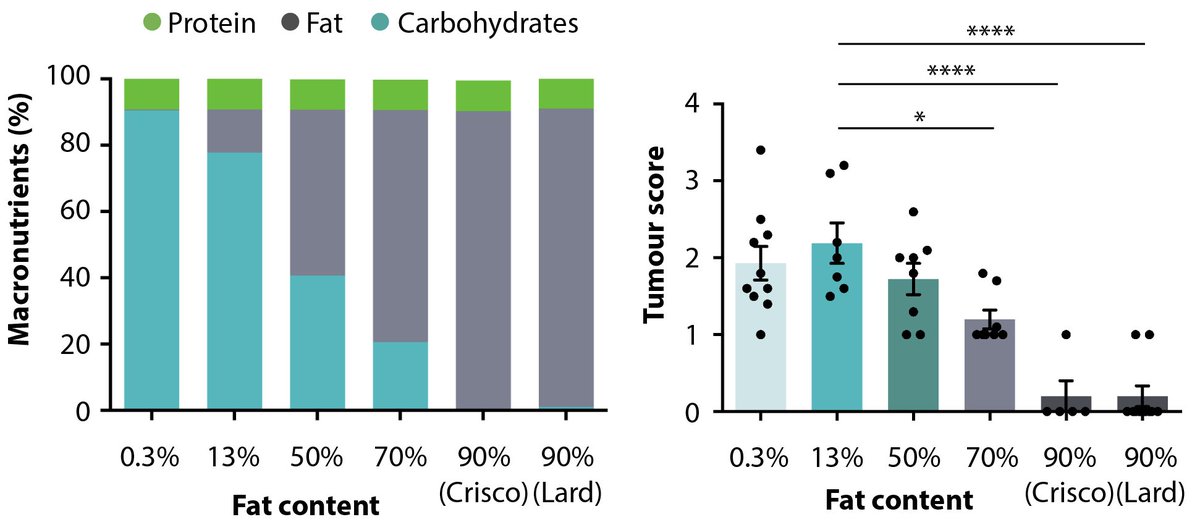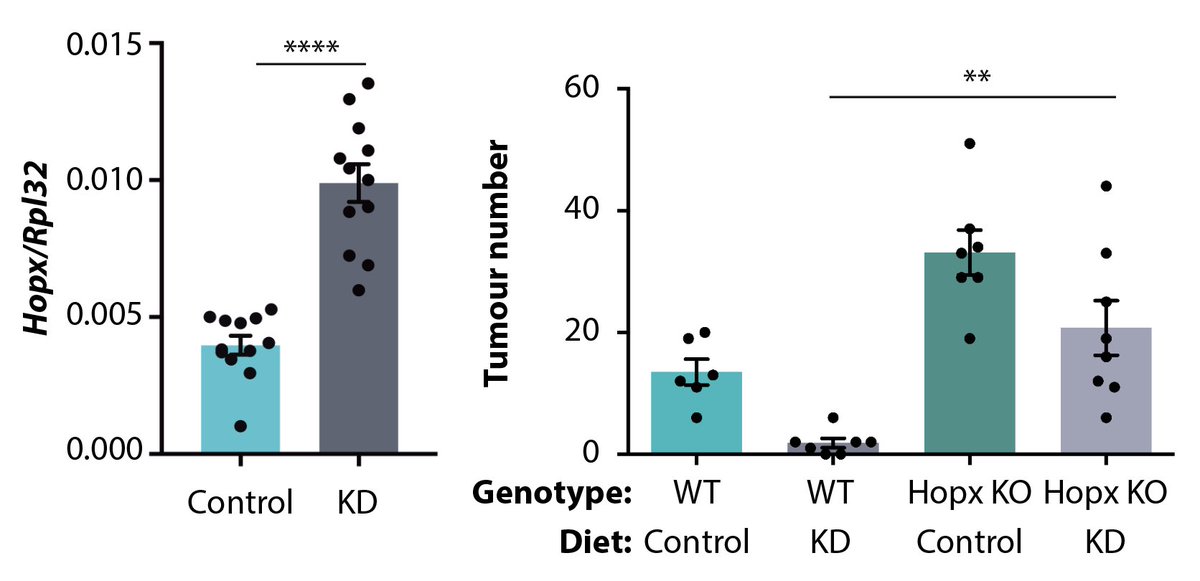
We are excited to share our new work @Nature with @ThaissLab, uncovering the impact of ketogenic diet and beta-hydroxybutyrate on colorectal cancer, led by @OxDmitrieva. (1/7)
nature.com/articles/s4158…
nature.com/articles/s4158…
We screened different diets for their potential to inhibit the development of colorectal cancer, and found that ketogenic diets had the most potent effect, in collaboration with @SGrivennikov. (2/7) 

Ketogenic diets induce hepatic ketogenesis, similar to long periods of #fasting. We found that the ketone body beta-hydroxybutyrate (BHB) was similarly protective against colorectal cancer as ketogenic diet. (3/7) 

How do ketogenic diets and BHB inhibit the growth of colorectal cancer? We teamed up with @jonepstein1 and Raj Jain to discover that the anti-cancer effect was mediated by the transcriptional regulator Hopx. (4/7) 

How is Hopx regulated by ketogenic diet and BHB? In collaboration with @KlausKaestner and @berger_lab, we ruled out epigenetic effects. A CRISPR screen showed that the regulation of Hopx and its tumor-inhibitory effect was mediated by the BHB receptor GPR109A/HCAR2. (5/7) 

The BHB-Hopx pathway also suppresses the growth of human colorectal cancer cells, which we found together with Bryson Katona, Chris Lengner, @KHamiltonPhD, and @beyazlab. (6/7) 

This discovery might provide us with a powerful tool in the fight against colorectal cancer. However, before making any recommendations about #ketogenic #diet and BHB for prevention or treatment, we need to wait for the results of clinical trials. Stay tuned! (7/7) 

Here is an open link to the PDF:
rdcu.be/cMeP1
rdcu.be/cMeP1
• • •
Missing some Tweet in this thread? You can try to
force a refresh



